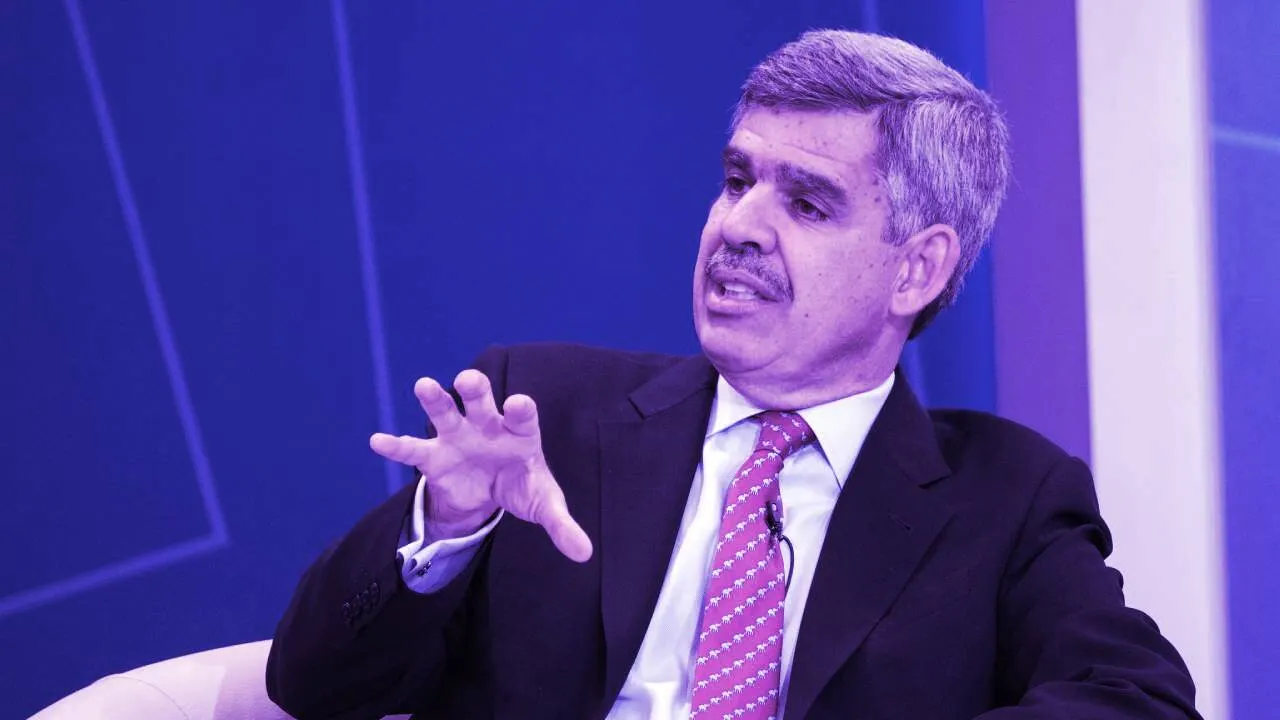In brief
- Allianz's chief economic adviser, Mohamed El-Erian, said Bitcoin is not too big to fail.
- A collapse of Bitcoin has the potential to disrupt the global monetary system, said El-Erian.
Mohamed El-Erian, chief economic adviser at German multinational financial services company Allianz, said that Bitcoin is "not too big to fail"—and if it does, it could disrupt the global monetary system.
"From a narrow perspective, it’s not too big to fail; from a broader perspective, that would be another challenge to the liquidity paradigm, where investors simply bet on liquidity," El-Erian told CNN earlier this week, adding, "We’ve already had three near-accidents, so you’ve got to be careful, you never know which little fender bender is going to cause a pile up on the highway."
In addition, El-Erian suggested that private sector adoption of Bitcoin will continue, but he issued a word of warning about the future role of governments allowing Bitcoin to thrive.
"This is an asset that wants to establish itself, but it can only establish itself if governments allow it to," he said, adding, "Be cautious, because not only are you assuming on private sector adoption, but you’re also assuming on government tolerance, and that second one, I’m not so sure about."
Bitcoin and central banks
Earlier this year, El-Erian said that Bitcoin "captures three things," or three types of investors—all of which should concern central banks.
The first are those investors that “truly believe Bitcoin will become money,” El-Erian said, adding, “If you’re a central bank and you have a monopoly over money, that’s not very reassuring at all.”
Second are those that could be described as negative investors. “They’re being pushed out of everything else and pushed into Bitcoin. It’s like being pushed into a marriage,” El-Erian said, adding, “Why are they doing that? Because they don’t know how else to mitigate risk.”
The last investor type is the traditional pure speculator. Those that make a bet on Bitcoin in the hope of larger profits down the road. “Where else do you get 20% returns or losses in a single day?” he said.
All of these investors—according to El-Erian—should concern central banks. “When it’s trading above $50,000, all three messages are problematic for central banks,” he said, adding, “So, we are going to see central banks look increasingly at cryptocurrencies as something they should be involved in, and not just stand on the sidelines.”
Daily Debrief Newsletter
Start every day with the top news stories right now, plus original features, a podcast, videos and more.

